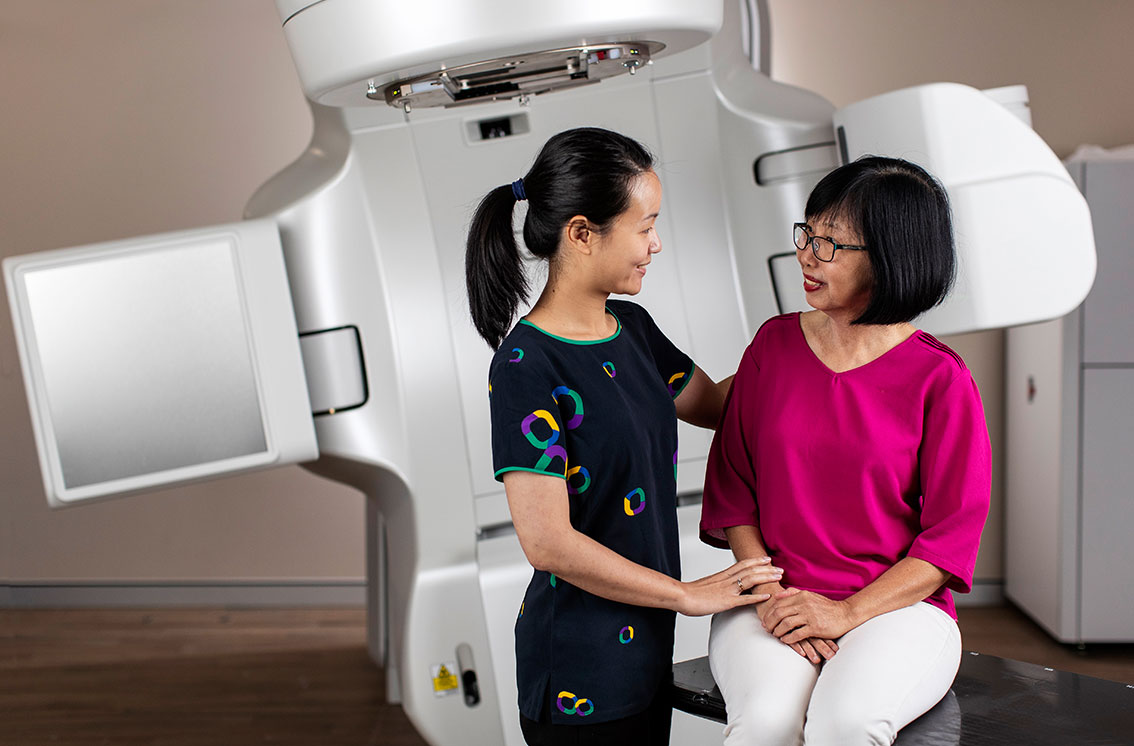Since radiation therapy is targeted to a specific area of your body, you will only experience side effects in this area.
Your clinical oncologist and treatment team will discuss the type of side effects you may experience before your treatment begins.
Two to three weeks after your radiation therapy begins, you may experience skin redness, dryness, itching, blistering, or peeling. These skin reactions may last throughout your treatment, and will usually resolve a few weeks after treatment has finished. Sometimes these effects may worsen towards the end of treatment and for up to two weeks after your treatment ends.
Another common side effect you may have during your treatment is fatigue, a feeling of exhaustion and lack of energy. As you reach the end of your treatment, your fatigue may worsen. Every person is affected by fatigue in different ways, which may also depend on whether you are receiving other cancer treatments, such as chemotherapy. Fatigue usually resolves a few weeks after the completion of your treatment. To best manage your fatigue, it’s important to find a balance between rest and activity.
Although most side effects are temporary and resolve after your radiation therapy is completed, there is a possibility that long-term effects may occur. Please discuss with your clinical oncologist as he/she is the best person to provide more details and this will be covered in the consent process before you start your treatment.
At Icon, we’re here to help you manage any side effects that you may have. Please talk to your care team about the side effects you are experiencing.
